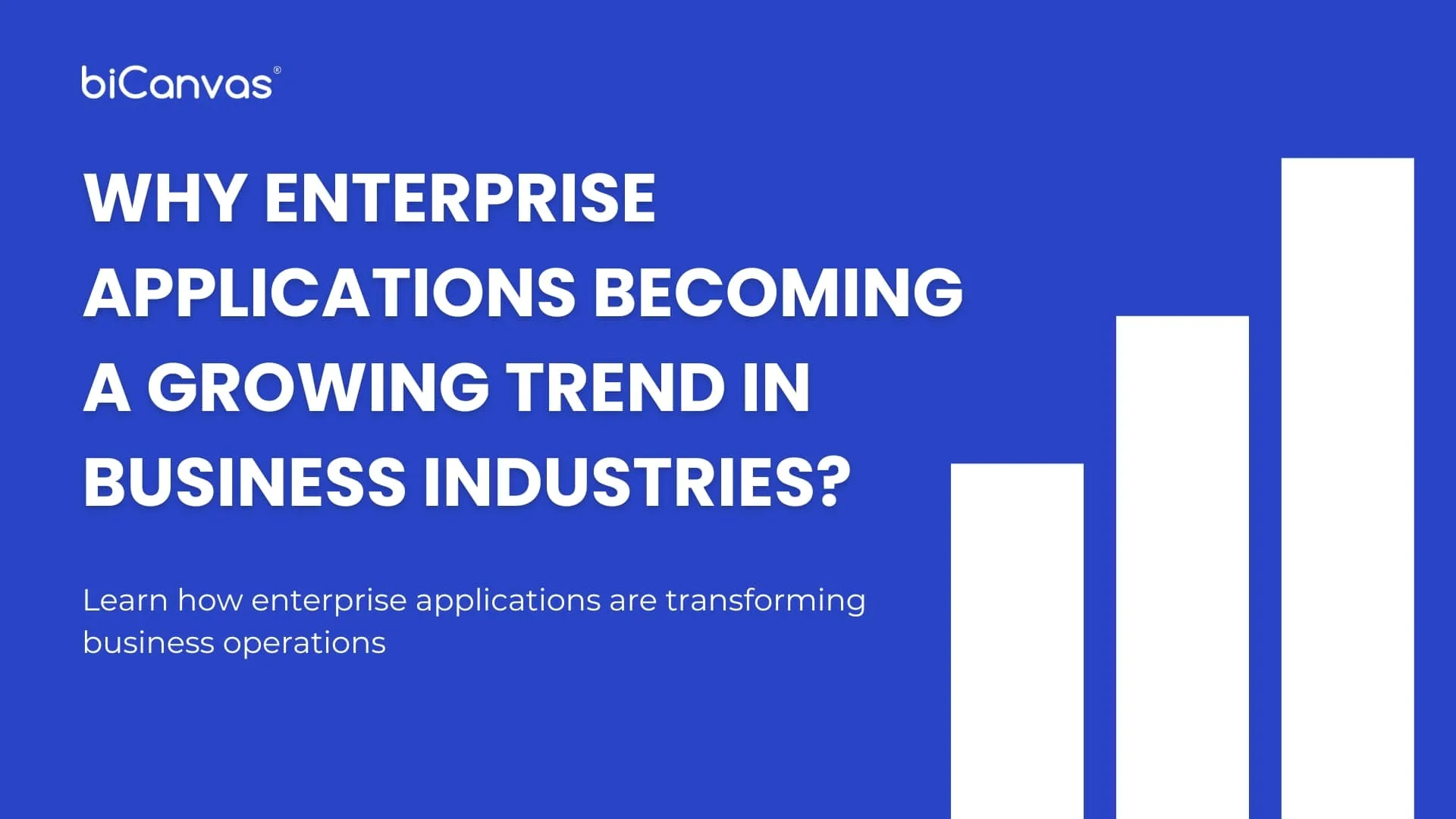Why Are Enterprise Applications Becoming a Growing Trend in Business Industries?
Introduction
Like the rest of the world, companies are also on the lookout for advanced technologies. Enterprise applications are the connection that bridges the gap between business operations and inventory management. It also helps businesses keep running in an orderly and efficient way. This article will familiarize you with some of the common technologies and practices employed by developers to accomplish their tasks.
A business can be completely transformed by the effective deployment of an Enterprise Resource Planning (ERP) system, which can improve operations' scalability and efficiency. As per a research report, 70% of enterprises adopt ERP software, and 53% of them find positive results after implementation. Globally, the manufacturing industry leads ERP usage with a 33.66% share, followed by supply chain and logistics (9.90%) and construction (1.98%).
What Are Enterprise Applications?
Enterprise applications are software solutions that support and improve business processes. These include CRM, ERP, HR, and SCM systems. They automate tasks, organize data, and improve team communication for better execution and increased profitability.
How Enterprise Applications Are Transforming Businesses
Through process simplification, data visibility enhancement, and real-time decision-making, enterprise applications are transforming business operations. From streamlining processes to raising customer engagement, these tools are driving efficiency and a competitive edge across industries.
1. Improving Efficiency and Productivity
Enterprise applications automate repetitive and time-consuming tasks, allowing employees to focus on strategic work. For example, ERP automates inventory tracking, helping avoid overstocking or shortages and ensuring accuracy without manual errors.
2. Collaboration and Communication
These systems provide centralized platforms for teams to collaborate, share files, and access real-time project updates. Employees can work from any location, increasing flexibility and productivity?especially in remote or hybrid setups.
3. Better Decision-Making with Data Insights
Enterprise applications transform large volumes of raw data into actionable insights using AI and analytics. ERP and CRM systems help companies identify inefficiencies, optimize resources, and enhance customer experience. Secure, real-time data access supports better strategic planning.
4. Stronger Security and Compliance
Data security is a top priority. Enterprise applications are built with security features like data encryption, user access control, and audit trails. This ensures companies comply with industry standards and safeguard sensitive data.
5. Scalability for Growth
Enterprise applications are built to scale. As your business grows, you can add users, departments, and features without disrupting performance. This flexibility supports expansion across multiple locations or markets.
Best Practices for Implementing Enterprise Applications

- Pick the Right Software: Choose a solution that aligns with your business goals and operational needs.
- User-Friendly Design: Ensure the application is easy to navigate so employees can use it efficiently.
- Invest in Training: Provide thorough training to maximize system utilization and ROI.
- Keep Security a Priority: Implement best practices to protect sensitive business data.
- Regular Updates and Maintenance: Keep your systems updated to maintain performance and security.
Conclusion
Enterprise applications form the foundation of digital transformation in modern businesses. They simplify operations, enhance collaboration, and deliver data-driven insights that lead to sustainable growth. Whether you're a small startup or a large enterprise, investing in the right enterprise applications helps future-proof your business and keeps you competitive in a rapidly evolving market.













